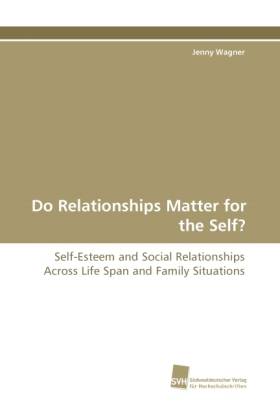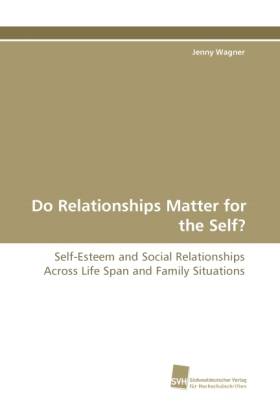
- Afhalen na 1 uur in een winkel met voorraad
- Gratis thuislevering in België vanaf € 30
- Ruim aanbod met 7 miljoen producten
- Afhalen na 1 uur in een winkel met voorraad
- Gratis thuislevering in België vanaf € 30
- Ruim aanbod met 7 miljoen producten
Zoeken
Do Relationships Matter for the Self?
Self-Esteem and Social Relationships Across Life Span and Family Situations
Jenny Wagner
Paperback | Engels
€ 88,95
+ 177 punten
Omschrijving
Humans are social creatures that long for relational connectedness. At the same time, they have a strong sense of self that seeks to maximize the capabilities of the individual. In these partially contradictory motivations self-evaluation has been proposed as a major process to initiate self-regulative mechanisms. One frequently identified self-evaluative indicator is self-esteem. The present research aims at exploring the extent to which self-evaluative processes depend on and interact with social relationships. The author links the self-esteem and social relationship literature with an emphasis on age related changes and specific challenges in the context of childlessness. Two empirical studies explore differential patterns of ego-centered social networks and dyadic relationships addressing effects on global and domain-specific self-esteem as well as a new construct of relationship functioning, that is, relational self-esteem. Findings point to a relational nature of self-evaluation. In all, results open up a new perspective on personal functioning across the life span by means of differential and relationship specific considerations.
Specificaties
Betrokkenen
- Auteur(s):
- Uitgeverij:
Inhoud
- Aantal bladzijden:
- 216
- Taal:
- Engels
Eigenschappen
- Productcode (EAN):
- 9783838109299
- Verschijningsdatum:
- 27/08/2009
- Uitvoering:
- Paperback
- Formaat:
- Trade paperback (VS)
- Afmetingen:
- 152 mm x 229 mm
- Gewicht:
- 294 g

Alleen bij Standaard Boekhandel
+ 177 punten op je klantenkaart van Standaard Boekhandel
Beoordelingen
We publiceren alleen reviews die voldoen aan de voorwaarden voor reviews. Bekijk onze voorwaarden voor reviews.











